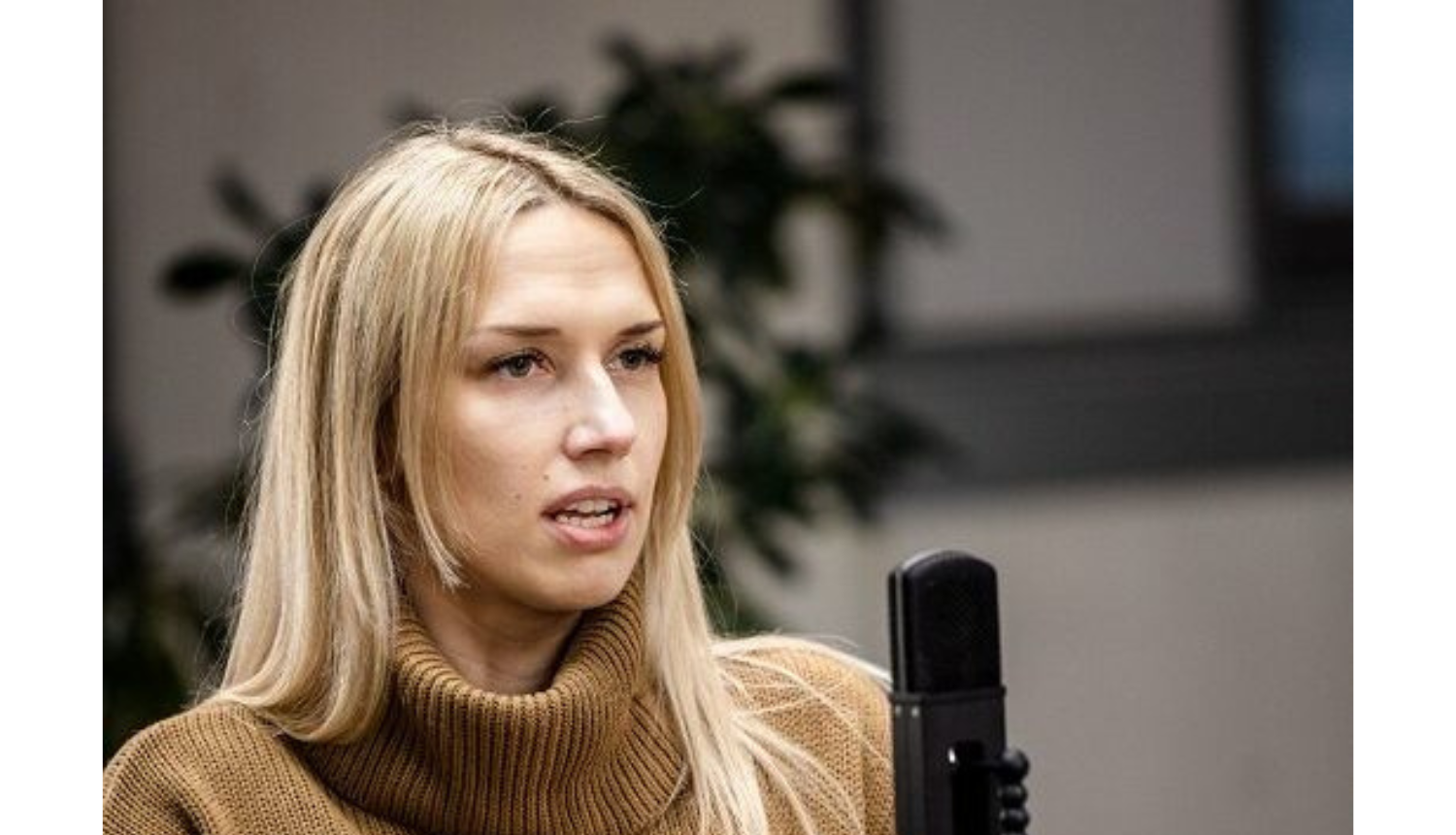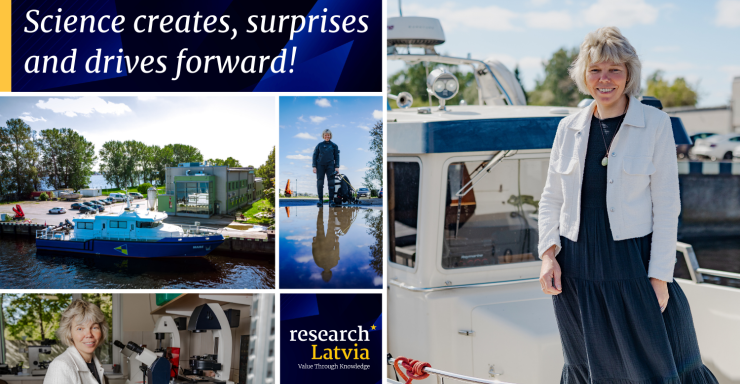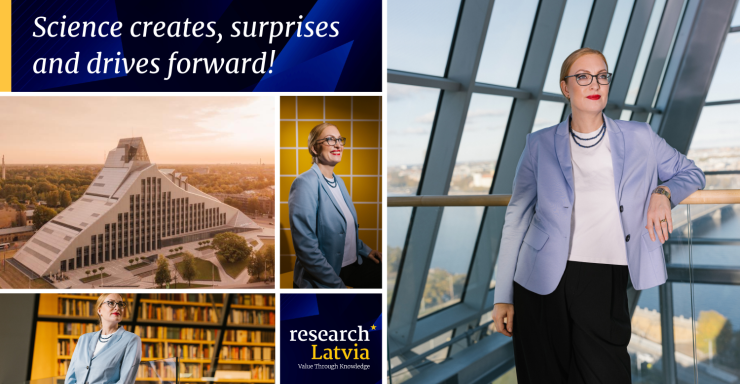Monta Brīvība, head of the Genome Center at the Latvian Biomedical Research and Study Center, is a genome researcher with a PhD in biology. She is actively involved in both Latvian and European scientific projects, making significant contributions to a field where the unknown still outweighs the known. Her research spans genomics, microbiomes, type 2 diabetes, and childhood cancer. She participates in the international “1+ Million Genomes” initiative and collaborates with Professor Jānis Kloviņš’s team on developing a polygenic risk calculator. Recognized for her work, Monta was awarded a Baltic–American Freedom Foundation scholarship for a four-month research placement in the U.S., where she plans to go with her family. Alongside her scientific pursuits, she enjoys folk dancing, raises a daughter with her husband, cares for two dogs, stays active, and strives for balance in life.
A Life-Changing Biology Book
Monta recalls her early interest in future careers during kindergarten. Initially, she thought of following her mother’s path as a cosmetologist, but that idea faded. Excelling in almost all school subjects made it hard for her to choose a career. By the end of 12th grade, she realized that biology, especially genetics, inspired her the most. "I remember that high school textbook with just one page on genetics," she recalls, amazed by how little was known about something that defines our essence.
Her commitment to biology was unwavering: when applying to university, she listed biology as her sole choice. “I made that decision once and never strayed,” she says.
From 1,000 Genomes to Over a Million
The field of genetics has progressed rapidly, thanks to technological advances. Monta recalls the 2010 “1000 Genomes” project in Europe, which aimed to sequence the genomes of 1,000 people to uncover the genome's secrets. Fourteen years later, much remains unknown. Only 2% of the genome consists of genes, and even that part isn’t fully understood.
When Europe launched the “1+ Million Genomes” initiative, Latvian scientists quickly joined, thanks to advanced sequencing technology and government funding. Monta emphasizes the importance of creating population-specific genomic references, allowing for more precise mutation detection: "If we compare Latvian genomes to other Latvians instead of different populations, we can identify mutations much more accurately."
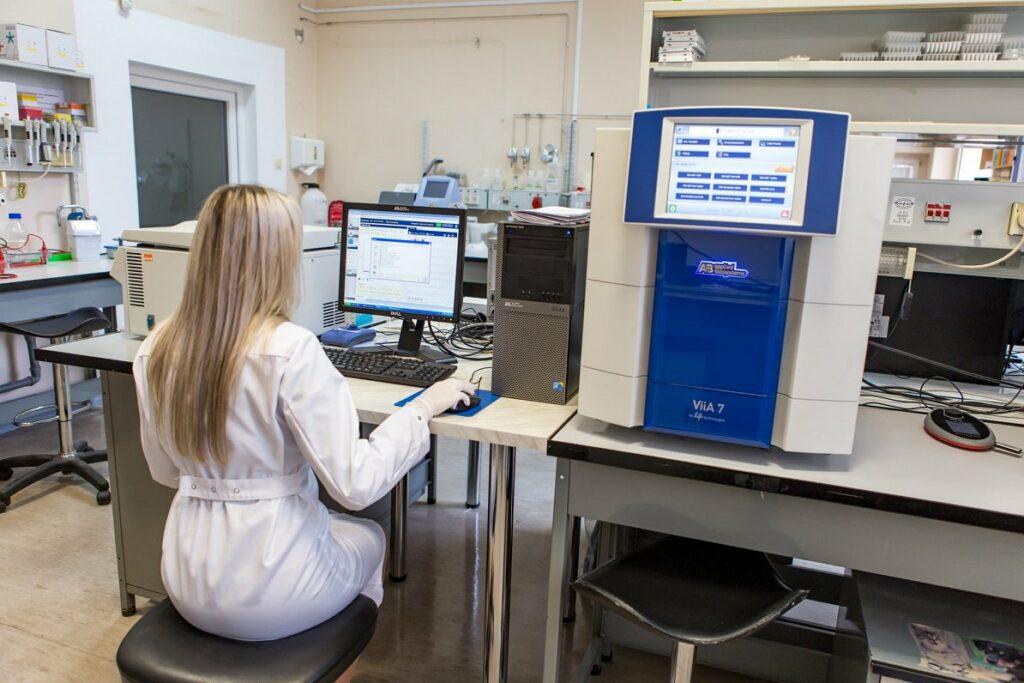
A key goal of the project, Monta emphasizes, is creating genome references for specific populations, enabling more accurate mutation detection. “When we sequence a genome, we compare it to a reference. Currently, this reference mainly derives from diverse populations. We could more accurately detect mutations if we used our genome as the reference—comparing Latvians with Latvians rather than with other populations. Ultimately, these genomic data will be applied in clinical practice, where precision is crucial.”
A Practical Path Forward
After earning her PhD, Monta faced a pivotal moment in determining her future research focus. Initially, her goal was clear—achieving the doctorate, primarily in type 2 diabetes and genetic markers. But once attained, the question arose: What’s next? Working in Professor Kloviņš’ group, she explored diverse topics, including genomes, microbiomes, and pediatric cancer, yet her passion for practical applications solidified her direction toward pediatric oncology. Here, genetic material is studied to improve treatment efficacy.
She explains, “I find motivation in knowing my work can save lives or prevent diseases.” In collaboration with the Children’s Clinical University Hospital, Monta’s research focuses on using genetic testing for precise diagnoses and tailored therapies. Understanding the mutations associated with specific diagnoses is crucial for clinical practice. In adult oncology, where cases are more homogeneous, research has advanced further. However, pediatric cancer presents numerous nuances, complicating studies.
Calculating Disease Risks
Genetics doesn’t dictate everything; environmental factors and lifestyle play significant roles. For instance, athleticism is roughly 60% influenced by genetics and 40% by external factors, which can be improved with training. In medicine, genetic testing holds even greater importance for disease prevention.
Monta and Professor Kloviņš’ group are developing a polygenic risk calculator to quantify genetic risk for specific diseases. She envisions a future where electronic health systems integrate genomic data, enabling doctors to use both lab results and genetic insights.
“Doctors could identify an elevated genetic risk for type 2 diabetes and recommend early dietary changes,” Monta says. While some debate whether people should know their genetic risks, she sees value in such knowledge: “Many diseases can be prevented with minimal effort—diet and physical activity.” Knowing genetic risks allows individuals to take preventive measures early on.
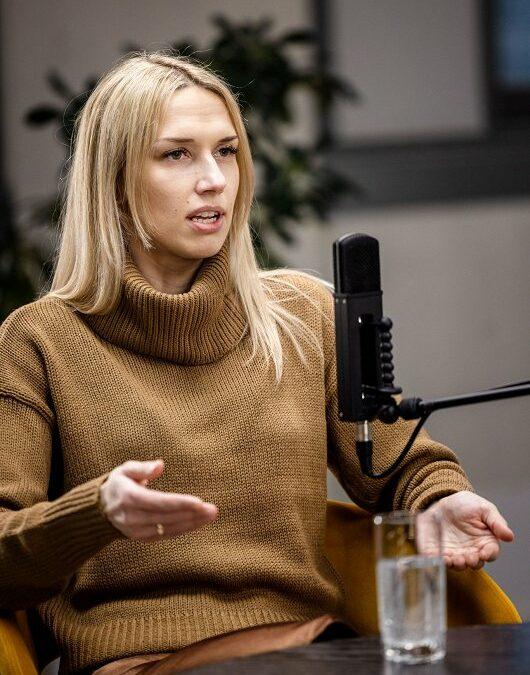
Driven by Passion
Balancing a career in science with motherhood, Monta often works late into the night. “Every scientist I know is deeply passionate about their work. It’s not a 9-to-5 job; you’re committed from A to Z,” she laughs. Conferences and writing scientific publications bring her inspiration, fueling her dedication.
For Monta, curiosity and intrinsic motivation are key drivers. “When motivation comes from within, things fall into place,” she concludes.
